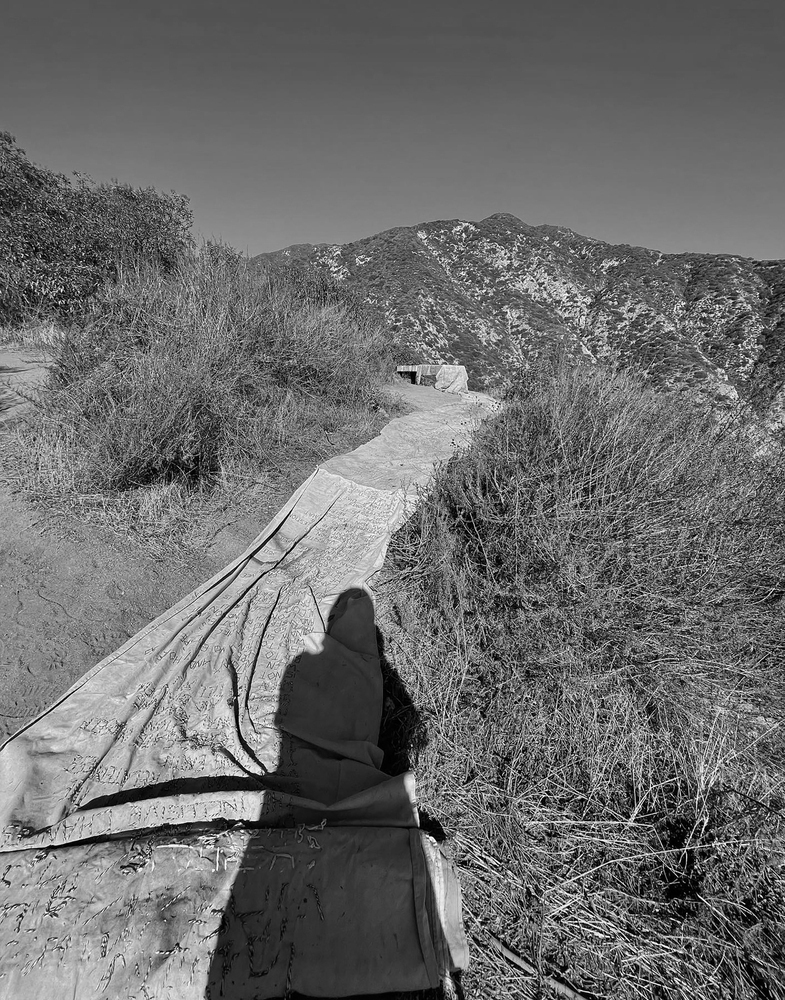
I'VE GOT TO TELL YOU SOMETHING NOW
first performed on March 15, 2020
Los Angeles National Forest
performed 365 times in 2020
AMANDA MACIEL ANTUNES
Los Angeles, CA
711493612a711493612n711493612t711493612u711493612n711493612e711493612s711493612a711493612m711493612a711493612@711493612g711493612m711493612a711493612i711493612l711493612.711493612c711493612o711493612m
amandamacielantunes.com
I'VE GOT TO TELL YOU SOMETHING NOW
AMANDA MACIEL ANTUNES
This work began on the first day of lockdown during the 2020 pandemic and will end on the same day of the following year, lasting a full year’s cycle. I live in a forest lodge in the Los Angeles National Forest near a trail that leads to a mountain path. I wanted to find my grounding in an action performed in a customary way, so I wouldn’t lose my grip on and what being home meant at this time. I wanted to be with my family in Brazil, but I couldn’t, so I began a pilgrimage up the mountains as an act of meditation and connection with the natural habitat, channelling my family’s matriarch’s advice on finding answers in the most unusual places. This rite of receiving nurture in the natural landscape is how I learned to find a sense of belonging and connection. When they wanted me to pay close attention, the women in my family used to begin a sentence with, “I’ve got to tell you something now,” speaking to the true complexity of place and the fullness of belonging. The culminating moment of the pilgrimage was a dream: a connection to my past and my past’s past.
As simple as a daily walking practice, I packed a little backpack with a cloth, sewing thread, and needle. I didn’t know what I would stitch or do or think about. I intentionally got rid of all distractions and made a point to be one with the mountains, allowing myself to use only those three materials that were familiar to me and my ancestors. Each day was documented with my phone that I placed on a self-timer by a bench about an hour up the trail, where I sat and stitched words that came to mind. The cloth is now over 60ft in length, and the backpack has changed, grown, and gotten much heavier. I think about these words as mantras, poems, prayers, and answers to questions that appear without distractions. I believe words fail to express what we have to grapple with or give voice to what we need and want to give voice to. This cyclical time of writing each day gave me a purpose to find words for what I didn’t have words for.